The world is a big, wonderful place full of facts we never thought possible. For instance, if a pregnant mouse has a sudden medical issue, the fetus will send stem cells to heal the mother, increasing its chances of survival as well. Fetal stem cells have been found in human mothers as well, dubbed by science as microchimerism.
Bright Side dug up some more marvelous facts about nature and its creations, upholding our yearly resolutions to spread knowledge and joy.
1. The heart slows when your face touches water.
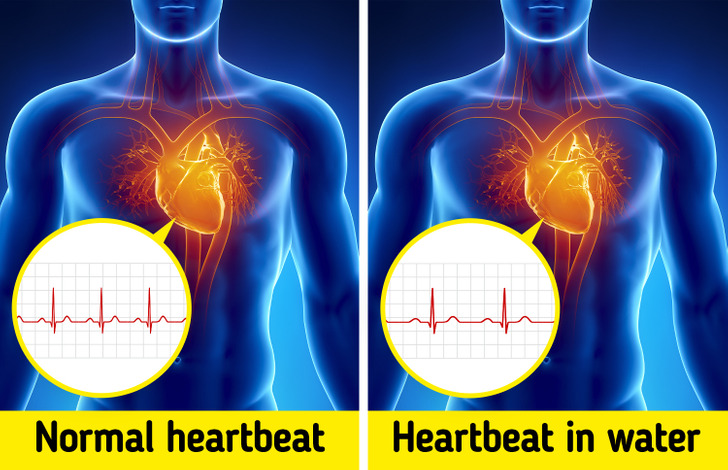
As mammals, we can’t breathe underwater, so as part of the mammalian dive reflex, our heart rate goes down in the water — more so if we go underwater. Even splashing the face with water makes the heart slow down, making it a great way to calm down.
2. Fungus can break down plastic in weeks.
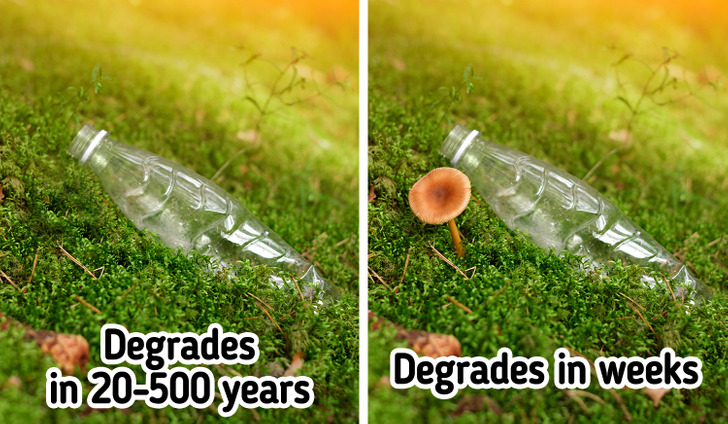
It is said that in the future, there may be more plastic in the ocean than fish. This is why the plastic-eating fungus is great news, and there are around 50 new species of such fungi discovered already. One of the fungi discovered can digest plastic within 2 months, so there’s hope for us yet.
3. Newborn babies can support their own weight.

Newborn babies are strong — strong enough to be able to grasp things in their tiny fists and even support their weight as shown by an experiment done in the nineteenth century. Louis Robinson witnessed babies able to hang from a walking stick, from 10 seconds to 2 minutes and 35 seconds.
4. Koala fingerprints have been mistaken for human ones.
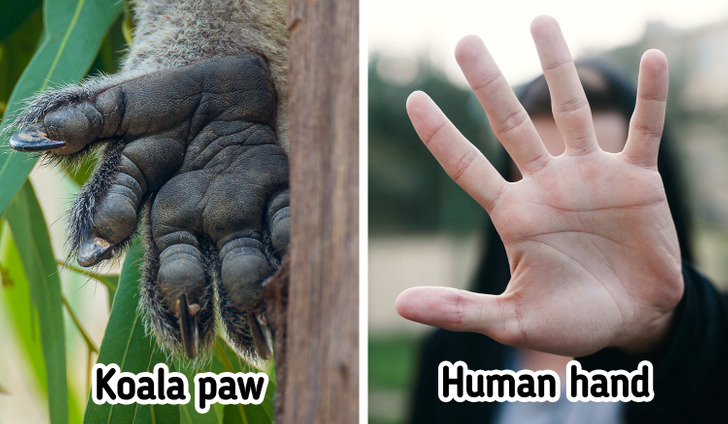
We’ve been told that our fingerprints are unique, and they are. But the fact remains that even though we share a common ancestor with the koala that was alive 100 million years ago, koala fingerprints look very similar to human fingerprints, as do chimpanzee fingerprints for that matter.
5. Snails can sleep for 3 years.
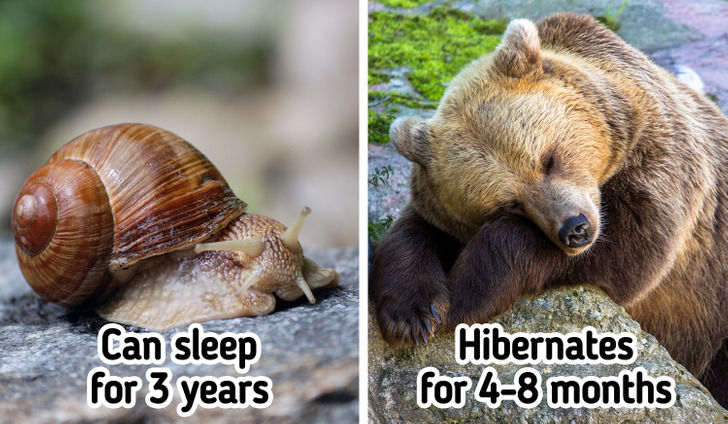
If you thought bears had it good with hibernation, meet the snail. Snails can sleep rather than hibernate for 3 years at a time without needing food. Of course, this is with some snail species, not all of them. Meanwhile, bears usually hibernate for just 4-8 months.
6. Sloths need 2 weeks to digest food.
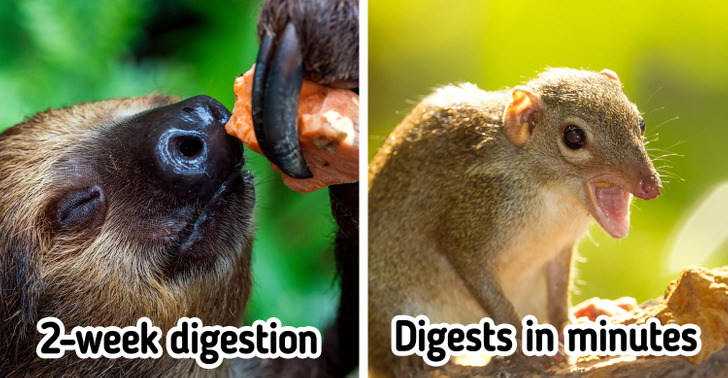
Sloths don’t only move in slow motion — even their insides move slowly, ostensibly to preserve energy, which is why a sloth’s digestive system takes 2 weeks to process the food it ate. Plus, most of what it eats is indigestible, giving it very little energy from each slowly chewed mouthful.
On the other end of the spectrum lies the shrew, whose digestion takes mere minutes and is done so fast, not much of it is fully digested. This is the reason why shrews eat their own feces. They can die of starvation in a matter of hours if they don’t eat.
7. Your brain ignores seeing your nose.
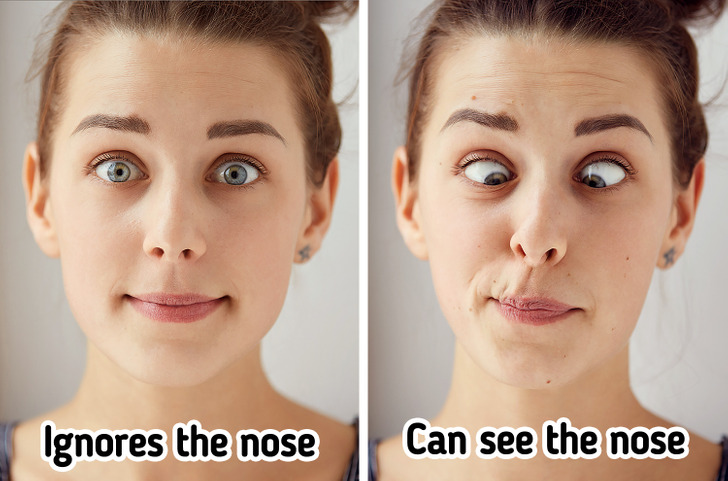
We can see our nose all the time, it’s just that the brain tends to ignore it because it’s a constant visual stimulus. It’s the same with people who wear glasses. After a while, they simply stop noticing them.
8. Your forearm is the same length as your foot.
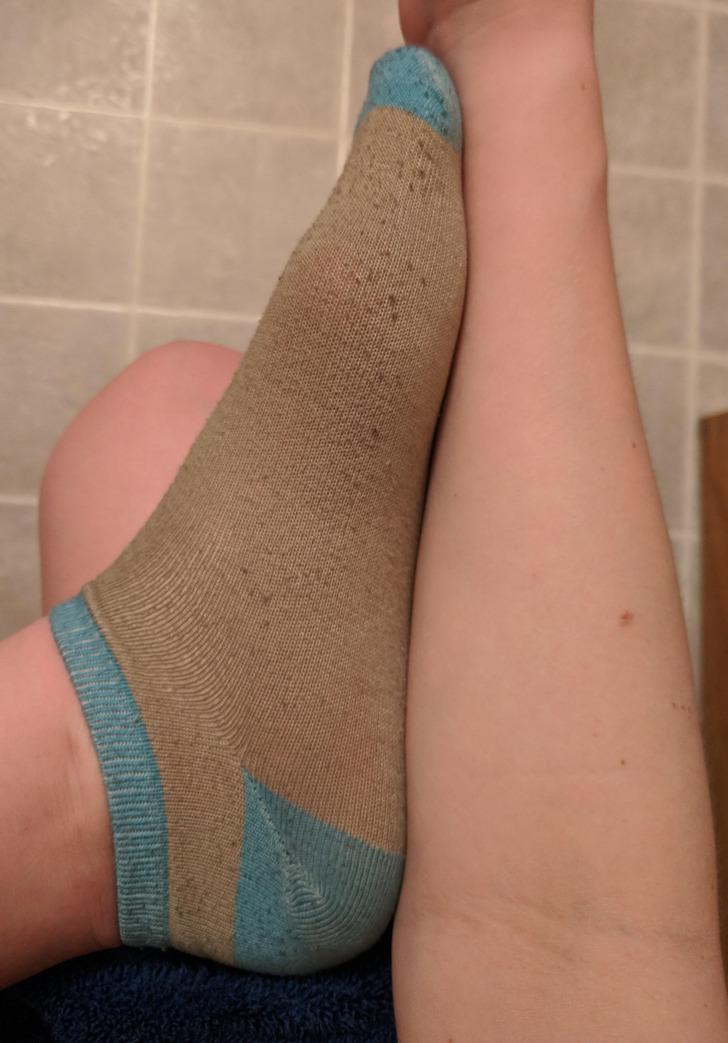
If you don’t have the time to try on a shoe, measure it from your elbow crease to your wrist. If it fits or is just a little smaller, it would fit your foot because the length of your forearm is the same as your foot. And this is just one of many human body ratios that are a marvel in themselves, including the fact that your femur bone is one-quarter your height.
9. You can “see” your white blood cells.
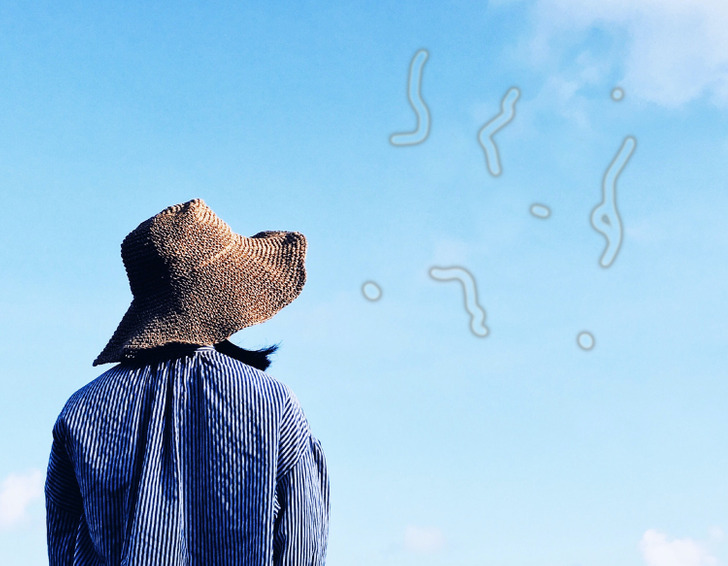
If you look up at a cloudless, bright blue sky and see some wiggly things at the periphery of your vision, you’ve just experienced the blue field entoptic phenomenon. The wiggly things are white blood cells moving in the fine blood vessels moving in front of the retina, at the back of the eye.
10. Human beings have striped skin, but only cats can see it.
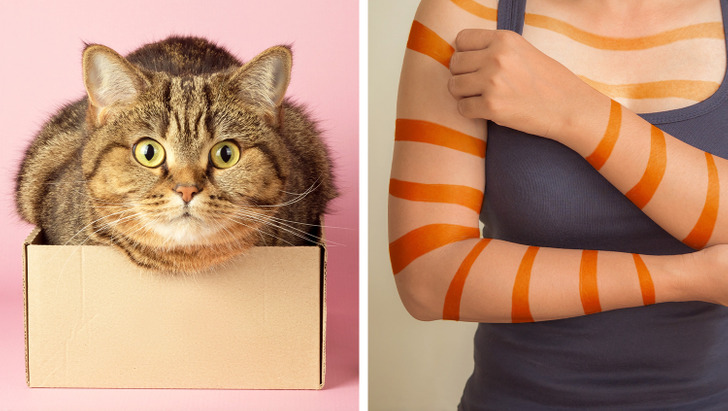
Human beings have stripes and patterns on the skin too, and they are called Lines of Blaschko, name eponymously by the scientist who discovered them, Dr. Alfred Blaschko. These are closer to tiger stripes, forming more of a V-pattern fanning out from the center to the extremities. These lines are visible under UV light, a spectrum that cats can see too, which is why cats can see you as a striped being as well.
Which of these facts turned out to be a revelation for you? Share your extreme nature facts with us and blow us away.
Preview photo credit Shutterstock.com, Shutterstock.com
My Son Is Failing School After Moving in with His Dad — I Just Found Out What’s Really Going on in That House

After her teenage son moves in with his dad, Claire tries not to interfere, until his silence speaks louder than words. When she finds out what’s really happening in that house, she does what mothers do best: she shows up. This is a quiet, powerful story of rescue, resilience, and unconditional love.
When my 14-year-old son, Mason, asked to live with his dad after the divorce, I said yes.
Not because I wanted to (believe me, I would have preferred to have him with me). But because I didn’t want to stand in the way of a father and son trying to find each other again. I still had Mason with me on weekends and whenever he wanted. I just didn’t have him every single day.

A teenage boy sitting on a porch | Source: Midjourney
He’d missed Eddie. His goofy, fun-loving dad who made pancakes at midnight and wore backward baseball caps to soccer games. And Eddie seemed eager to step up. He wanted to be involved. More grounded.
So, I let Mason go.
I told myself that I was doing the right thing. That giving my son space wasn’t giving him up.

A man holding a stack of pancakes | Source: Midjourney
I didn’t expect it to break me quietly.
At first, Mason called often. He sent me silly selfies and updates about the pizza-and-movie nights with his dad. He sent me snapshots of half-burnt waffles and goofy grins.
I saved every photo. I rewatched every video time and time again. I missed him but I told myself this was good.
This was what he needed.

A stack of half-burnt waffles on a plate | Source: Midjourney
He sounded happy. Free. And I wanted to believe that meant he was okay.
But then the calls slowed down. The texts came less frequently. Conversations turned into one-word replies.
Then silence.
And then calls started coming from somewhere else. Mason’s teachers.

A concerned teacher | Source: Midjourney
One emailed about missing homework.
“He said he forgot, Claire. But it’s not like him.”
Another called during her lunch break, speaking in between bites of a sandwich, I assumed.
“He seems disconnected. Like he’s here but not really… Is everything okay at home?”

A sandwich on a plate | Source: Midjourney
And then the worst one, his math teacher.
“We caught him cheating during a quiz. That’s not typical behavior. I just thought you should know… he looked lost.”
That word stuck to me like static.

A side profile of a worried woman | Source: Midjourney
Lost.
Not rebellious. Not difficult. Just… lost.
It landed in my chest with a cold weight. Because that wasn’t my Mason. My boy had always been thoughtful, careful. The kind of kid who double-checked his work and blushed when he didn’t get an A.
I tried calling him that night. No answer. I left a voicemail.

A boy sitting at a table | Source: Midjourney
Hours passed. Nothing.
I sat on the edge of my bed, phone in hand, staring at the last photo he’d sent—him and Eddie holding up a burnt pizza like a joke.
But it didn’t feel funny anymore. Something was wrong. And the silence was screaming.
I called Eddie. Not accusatory, just concerned. My voice soft, neutral, trying to keep the peace.

A close up of a concerned woman | Source: Midjourney
I was careful, walking that tightrope divorced moms know too well, where one wrong word can be used as proof that you’re “controlling” or “dramatic.”
His response?
A sigh. A tired, dismissive sigh.
“He’s a teenager, Claire,” he said. “They get lazy from time to time. You’re overthinking again.”

A man talking on the phone | Source: Midjourney
Overthinking. I hated that word.
It hit something in me. He used to say that when Mason was a baby and colicky. When I hadn’t slept in three nights and sat on the bathroom floor crying, holding our screaming newborn while Eddie snored through it.
“You worry too much,” he’d mumbled back then. “Relax. He’ll be fine.”

A crying baby | Source: Midjourney
And I believed him. I wanted to believe him. Because the alternative… that I was alone in the trenches… was just too heavy to carry.
Now here I was again.
Mason still crying, just silently this time. And Eddie still rolling over, pretending everything was okay.
But this time? My silence had consequences.

A woman holding her head | Source: Midjourney
This wasn’t a newborn with reflux. This was a boy unraveling quietly in another house.
And something deep inside me, the part of me that’s always known when Mason needed me, started to scream out.
One Thursday afternoon, I didn’t ask Eddie’s permission. I just drove to Mason’s school to fetch him. It was raining, a thin, steady drizzle that blurred the world into soft edges. The kind of weather that makes you feel like time is holding its breath.

A worried woman sitting in a car | Source: Midjourney
I parked where I knew he’d see me. Turned off the engine. Waited.
When the bell rang, kids poured out in clusters, laughing, yelling, dodging puddles. Then I saw him, alone, walking slowly, like each step cost my baby something.
He slid into the passenger seat without a word.

A pensive teenage boy | Source: Midjourney
And my heart shattered.
His hoodie clung to him. His shoes were soaked. His backpack hung off one shoulder like an afterthought. But it was his face that undid me.
Sunken eyes. Lips pale and cracked. Shoulders curved inward like he was trying to make himself disappear.
I handed him a granola bar with shaking hands. He stared at it but didn’t move.

A granola bar on a piece of paper | Source: Midjourney
The heater ticked, warming the space between us but not enough to thaw the ache in my chest.
Then, he whispered, barely above the sound of the rain on the windshield.
“I can’t sleep, Mom. I don’t know what to do…”
That was the moment I knew, my son was not okay.

An upset boy sitting in a car | Source: Midjourney
The words came slowly. Like he was holding them in with both hands, trying not to spill. Like if he let go, he might shatter.
Eddie had lost his job. Just weeks after Mason moved in. He didn’t tell anyone. Not Mason. Not me. He tried to keep the illusion alive, same routines, same smile, same tired jokes.
But behind the curtain, everything was falling apart.

An upset man sitting on a couch | Source: Midjourney
The fridge was almost always empty. Lights flickered constantly. Mason said he stopped using the microwave because it made a weird noise when it ran too long. Eddie was out most nights.
“Job interviews,” he claimed but Mason said that he didn’t always come back.
So my son made do. He had cereal for breakfast. Sometimes dry because there was no milk. He did laundry when he ran out of socks. He ate spoonfuls of peanut butter straight from the jar and called it lunch. Dried crackers for dinner.

A plate of crackers | Source: Midjourney
He did his homework in the dark, hoping that the Wi-Fi would hold long enough to submit assignments.
“I didn’t want you to think less of him,” Mason said. “Or me.”
That’s when the truth hit. He wasn’t lazy. He wasn’t rebelling.
He was drowning. And all the while, he was trying to keep his father afloat. Trying to hold up a house that was already caving in. Trying to protect two parents from breaking further.

A boy doing his homework | Source: Midjourney
And I hadn’t seen it.
Not because I didn’t care. But because I told myself staying out of it was respectful. That giving them space was the right thing.
But Mason didn’t need space. He needed someone to call him back home.
That night, I took him back with me. There were no court orders. No phone calls. Just instinct. He didn’t argue at all.

The exterior of a cozy home | Source: Midjourney
He slept for 14 hours straight. His face was relaxed, like his body was finally safe enough to let go.
The next morning, he sat at the kitchen table and asked if I still had that old robot mug. The one with the chipped handle.
I found it tucked in the back of the cupboard. He smiled into it and I stepped out of the room before he could see my eyes fill.

A sleeping boy | Source: Midjourney
“Mom?” he asked a bit later. “Can you make me something to eat?”
“How about a full breakfast plate?” I asked. “Bacon, eggs, sausages… the entire thing!”
He just smiled and nodded.

A breakfast plate | Source: Midjourney
I filed for a custody change quietly. I didn’t want to tear him apart. I didn’t want to tear either of them apart. I knew that my ex-husband was struggling too.
But I didn’t send Mason back. Not until there was trust again. Not until Mason felt like he had a choice. And a place where he could simply breathe and know that someone was holding the air steady for him.
It took time. But healing always does, doesn’t it?
At first, Mason barely spoke. He’d come home from school, drop his backpack by the door and drift to the couch like a ghost. He’d stare at the TV without really watching.

A boy sitting on a couch | Source: Midjourney
Some nights, he’d pick at his dinner like the food was too much for him to handle.
I didn’t push. I didn’t pepper him with questions or hover with worried eyes.
I just made the space soft. Predictable. Safe.
We started therapy. Gently. No pressure. I let him choose the schedule, the therapist, even the music on the car ride there. I told him we didn’t have to fix everything at once, we just had to keep showing up.

A smiling therapist sitting in her office | Source: Midjourney
And then, quietly, I started leaving notes on his bedroom door.
“Proud of you.”
“You’re doing better than you think, honey.”
“You don’t have to talk. I see you anyway.”
“There’s no one else like you.”

Colored Post-its stuck on a door | Source: Midjourney
For a while, they stayed untouched. I’d find them curled at the edges, the tape starting to yellow. But I left them up anyway.
Then one morning, I found a sticky note on my bedside table. Written in pencil with shaky handwriting.
“Thanks for seeing me. Even when I didn’t say anything. You’re the best, Mom.”
I sat on the edge of my bed and held that note like it was something sacred.

A pink Post-it pad on a nightstand | Source: Midjourney
A month in, Mason stood in the kitchen one afternoon, backpack slung over one shoulder.
“Hey, Mom? Would it be okay if I stayed after school for robotics club?”
I froze, mid-stir, the sauce bubbling quietly on the stove.
“Yeah,” I said, careful not to sound too excited. “Of course. That sounds great.”
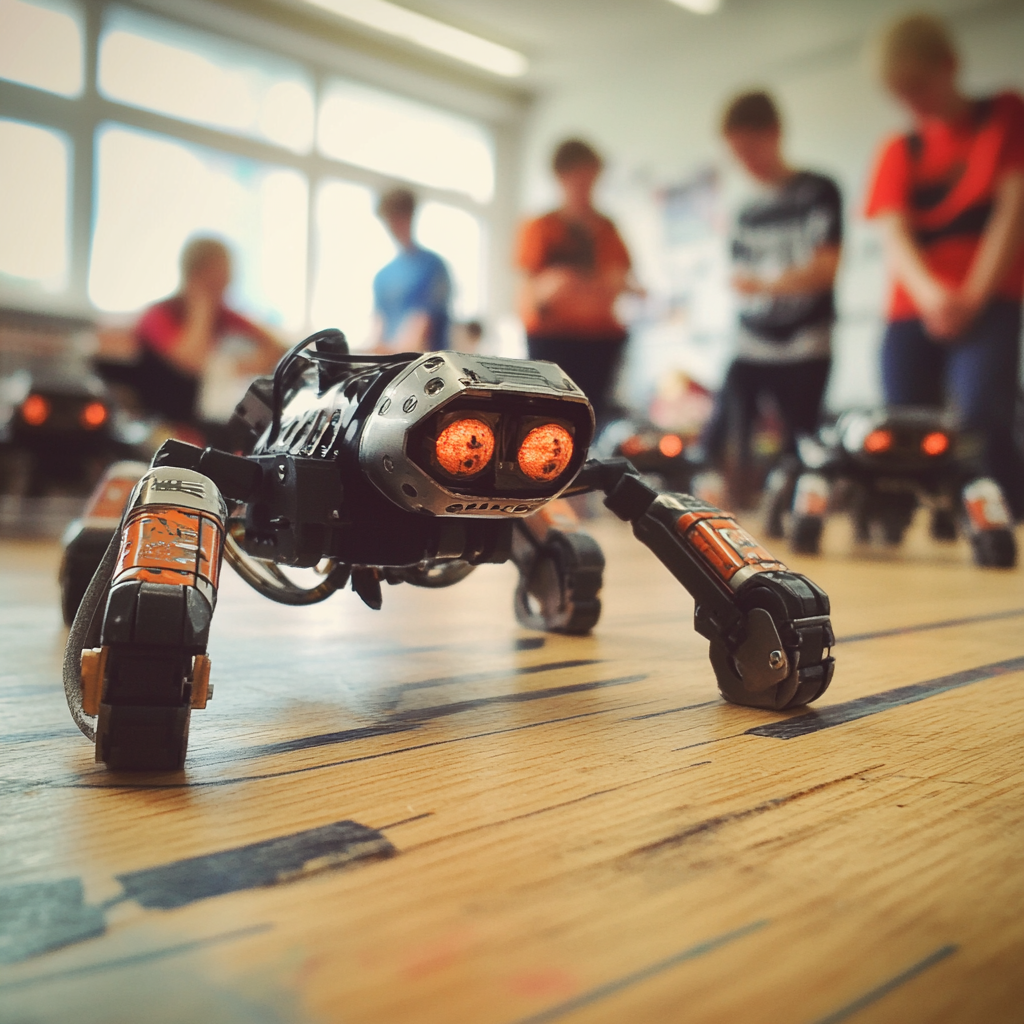
Students at a robotics club | Source: Midjourney
His eyes flicked up, almost shyly.
“I think I want to start building stuff again.”
And I smiled because I knew exactly what that meant.
“Go, honey,” I said. “I’ll make some garlic bread and we can pop it in the oven when you get back.”

A tray of cheesy garlic bread | Source: Midjourney
Two weeks later, he brought home a model bridge made of popsicle sticks and hot glue. It collapsed the second he picked it up.
He stared at the wreckage for a second, then laughed. Like, really laughed.
“That’s okay,” he said. “I’ll build another one.”
God, I wanted to freeze that moment. Bottle it. Frame it. I wanted this moment to last forever. Because that was my boy.

A model bridge made of popsicle sticks | Source: Midjourney
The one who used to build LEGO cities and dream out loud about being an engineer. The one who’d been buried under silence, shame, and survival.
And now he was finding his way back. One stick, one smile, and one note at a time.
In May, I got an email from his teacher. End-of-year assembly.

LEGO blocks on a carpet | Source: Midjourney
“You’ll want to be there,” she wrote.
They called his name and my hands started shaking.
“Most Resilient Student!”
He walked to the stage, not rushed or embarrassed. He stood tall and proud. He paused, scanned the crowd, and smiled.

A smiling boy standing on a stage | Source: Midjourney
One hand lifted toward me, the other toward Eddie, sitting quietly in the back row, tears shining.
That one gesture said everything we hadn’t been able to say. We were all in this together. Healing.
Eddie still calls. Sometimes it’s short, just a quick, “How was school?” or “You still into that robot stuff, son?”
Sometimes they talk about movies they used to watch together. Sometimes there are awkward silences. But Mason always picks up.

A close up of a smiling woman | Source: Midjourney
It’s not perfect. But it’s something.
Mason lives with me full-time now. His room is messy again, in the good way. The alive way. Clothes draped over his chair. Music too loud. Cups mysteriously migrating to the bathroom sink.
I find little notes he writes to himself taped to the wall above his desk.

A messy room | Source: Midjourney
Things like:
“Remember to breathe.”
“One step at a time.”
“You’re not alone, Mase.”
He teases me about an ancient phone and greying hair. He complains about the asparagus I give him with his grilled fish. He tries to talk me into letting him dye his hair green.

Grilled fish and asparagus on a plate | Source: Midjourney
And when he walks past me in the kitchen and asks for help, I stop what I’m doing and do it.
Not because I have all the answers. But because he asked. Because he trusts me enough to ask. And that matters more than any fix.
I’ve forgiven myself for not seeing it sooner. I understand now that silence isn’t peace. That distance isn’t always respect.

A happy teenage boy | Source: Midjourney
Sometimes, love is loud. Sometimes, it’s showing up uninvited. Sometimes, it’s saying, I know you didn’t call but I’m here anyway.
Mason didn’t need freedom. He needed rescue. And I’ll never regret reaching for him when he was slipping under.
Because that’s what moms do. We dive in. We hold tight. And we don’t let go until the breathing steadies, the eyes open and the light comes back.

A smiling woman sitting on a porch | Source: Midjourney



Leave a Reply